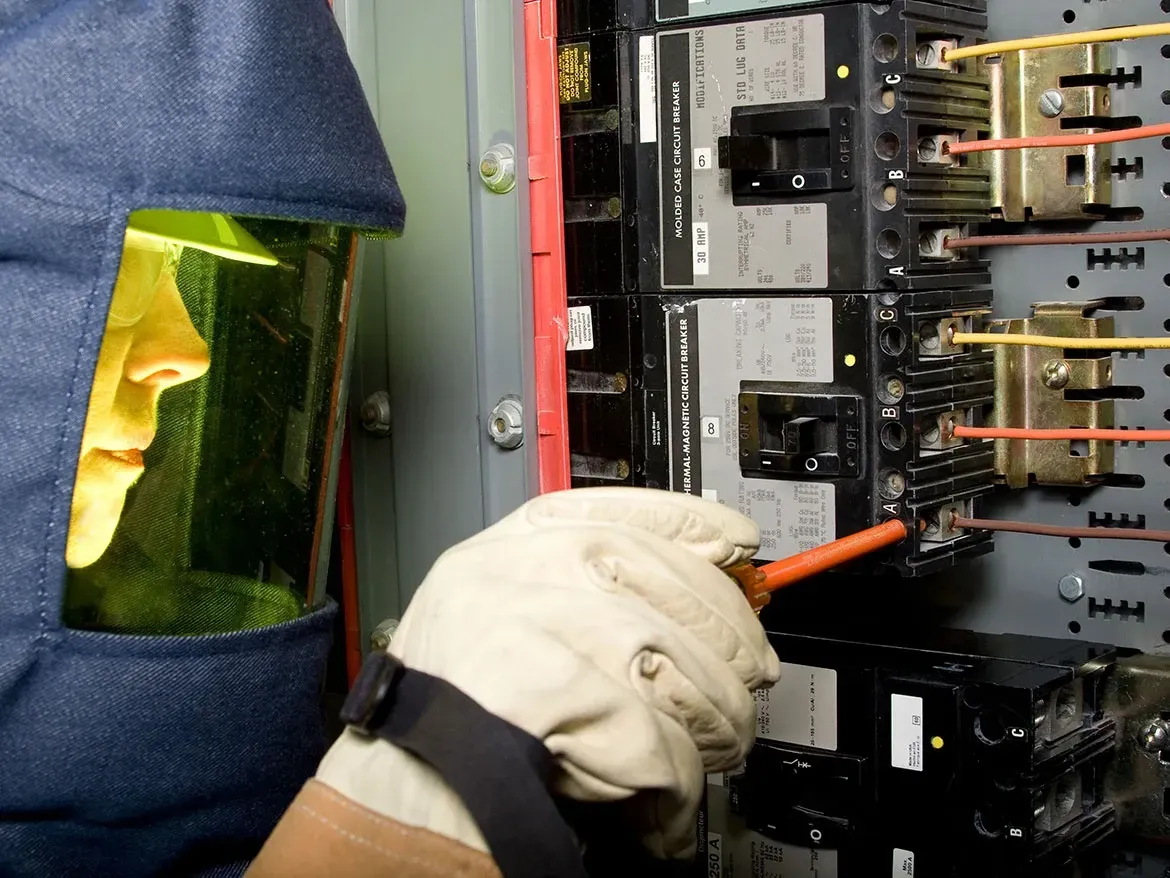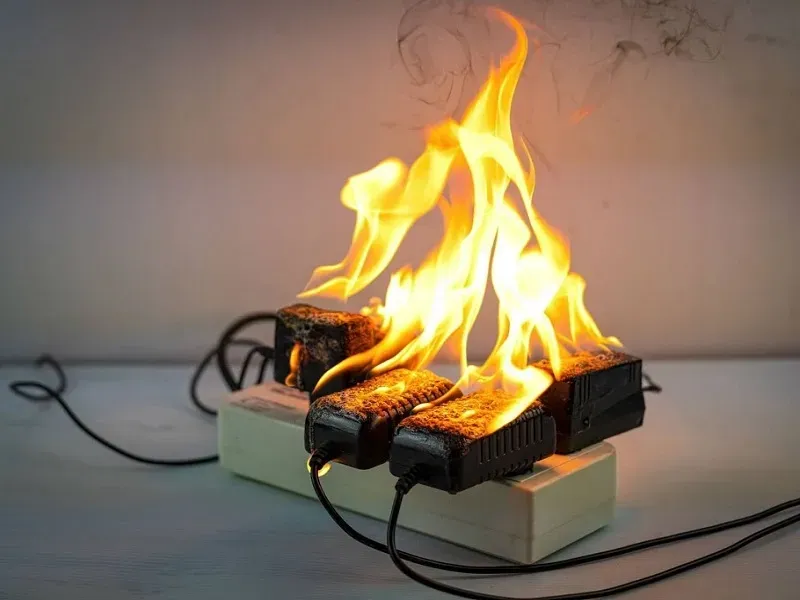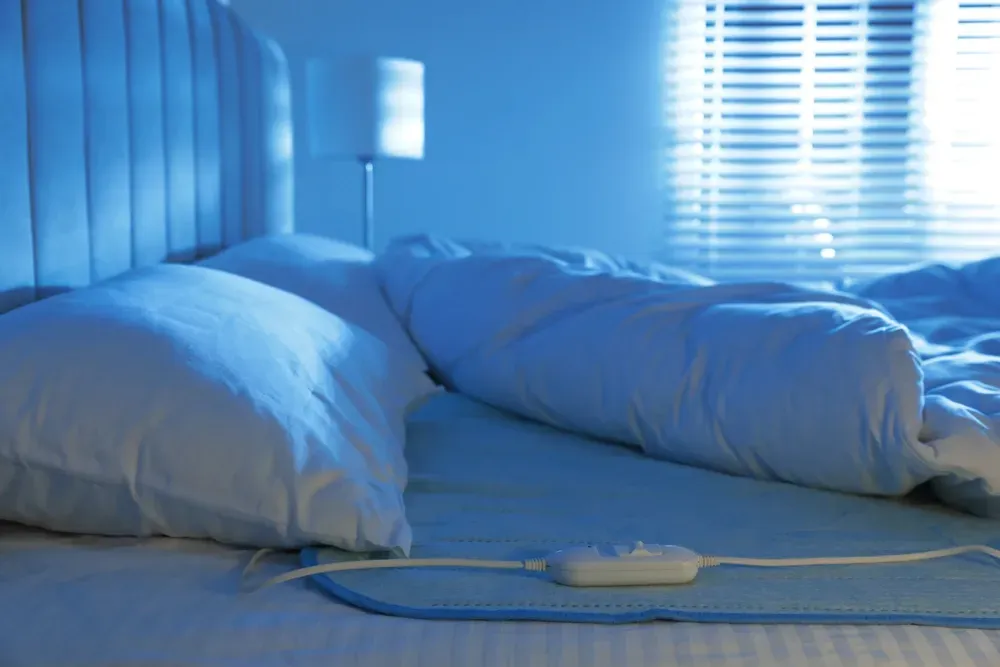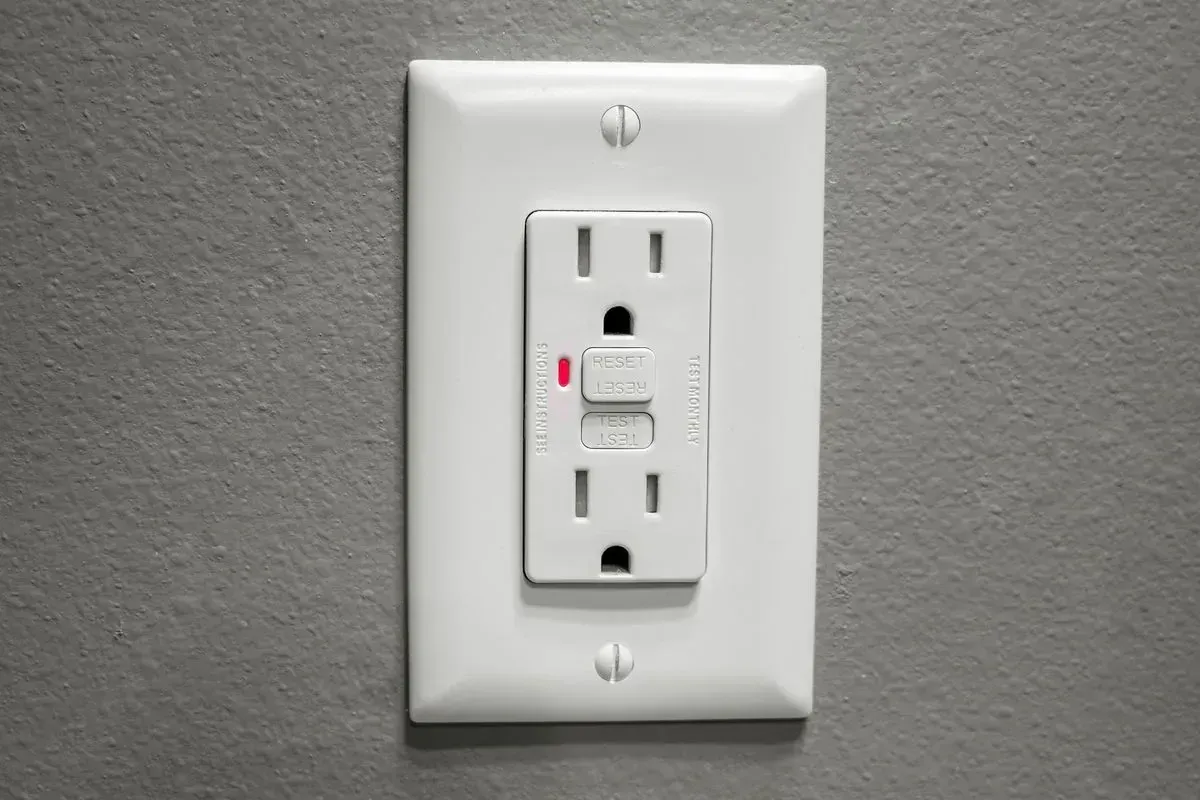Electrical Safety Myths: What Every Homeowner Should Know
Dangerous electrical myths continue to spread through communities, putting families and properties at risk. These misconceptions, often shared as "common knowledge," can lead to serious accidents, costly repairs, and even fatalities. At Bee-lectric, we've seen firsthand how these myths contribute to preventable electrical incidents. Let's set the record straight on the most harmful electrical safety misconceptions.
Myth-Busting: Common Electrical Safety Misconceptions

Any Rubber Gloves Will Protect You From Shock
The Truth: Regular cleaning gloves won't save you from electrical hazards. While rubber does insulate, household gloves contain tiny holes and weak spots that electricity can easily penetrate. Only certified electrical gloves tested to specific voltage ratings and OSHA standards provide real protection. These professional-grade gloves undergo rigorous testing and must be inspected before each use.
Bottom Line: Don't gamble with discount store gloves when dealing with electricity.
Wooden Ladders Are Electrically Safe
The Reality: This myth has caused countless accidents. Dry wood does have some insulating qualities, but most wooden ladders become conductive due to moisture, dirt, sweat, and metal hardware. Even slight humidity can make wood conduct electricity effectively.
Professional Approach: Electrical contractors use fiberglass ladders specifically designed and tested for electrical work. These non conductive ladders don't rely on environmental conditions for safety.
Minor Electrical Shocks Aren't Dangerous
The Hidden Truth: "Small" shocks can cause serious internal damage that isn't immediately visible. Electrical current can disrupt heart rhythms, burn internal organs, and create lasting neurological issues. Individual sensitivity varies dramatically what feels minor to one person could be fatal to another.
Medical Reality: Even seemingly harmless electrical contact requires medical evaluation, as internal injuries may not present symptoms immediately.
Light Switch Off = Safe to Work
The Danger: This misconception leads to numerous electrical accidents annually. Light switches only control one part of a circuit. Other circuits may share the same electrical box, keeping wires energized even when the switch is off.
Safe Practice: Always turn off the correct circuit breaker and test wires with proper equipment before beginning any electrical work. When in doubt, call a professional electrician.
Circuit Breakers Prevent All Electrical Hazards
The Limitation: Circuit breakers primarily protect against overcurrent and fire hazards not electrocution. They may not trip quickly enough to prevent serious injury or death from electrical shock.
Additional Protection: GFCI outlets and breakers offer faster protection against ground faults, but comprehensive electrical safety requires multiple layers of protection and proper work practices.
Extension Cords Make Great Permanent Solutions
The Problem: Extension cords are engineered for temporary use only. Permanent use causes overheating, insulation breakdown, and fire risks. The plug-to-outlet connections create resistance points where dangerous heat accumulates.
Proper Solution: Permanent electrical needs require professional wiring installation with appropriate gauge wire and proper safety devices.
All Water Conducts Electricity Equally
The Science: Pure water actually conducts electricity poorly. However, real-world water contains dissolved minerals and impurities that make it highly conductive. Tap water, rainwater, and most water sources contain enough dissolved substances to create serious electrical hazards.
Safe Assumption: Treat all water as conductive around electrical systems because it almost always is.
Water Can Extinguish Electrical Fires
Fatal Mistake: Using water on electrical fires can electrocute the person fighting the fire while spreading electrical current to other areas. This myth has resulted in numerous deaths and expanded property damage.
Correct Response: Use Class C fire extinguishers with non-conductive agents. First, safely shut off power at the main breaker if possible, then address the fire with appropriate suppression methods.
Old Electrical Systems Are Fine If They Still Work
The Evolution: Electrical codes continuously improve based on new safety research and accident analysis. Systems installed decades ago may not handle modern electrical demands safely.
Modern Reality: Today's homes use significantly more electricity than older systems were designed to handle. The explosion of electronic devices often exceeds older system capacity, creating dangerous overload conditions.
Homeowners Can Never Do Electrical Work
The Nuance: While complex electrical work requires professional expertise, most codes allow homeowners to perform certain electrical tasks on their own properties with proper permits and inspections.
Know Your Limits: Simple replacements like outlets or fixtures may be DIY-appropriate, while panel work, rewiring, and complex installations require licensed professionals.
Understanding Electrical Hazards: The Science
This is paragraph text. Click it or hit the Manage Text button to change the font, color, size, format, and more. To set up site-wide paragraph and title styles, go to Site Theme.
How Electricity Affects Your Body
Your body contains electrolytes that make it an effective electrical conductor. Even small currents can disrupt normal bodily functions, especially your heart's electrical system that controls rhythm and pumping.
Variables That Determine Injury Severity
Several factors influence electrical injury outcomes:
- Current amount and voltage level
- Duration of electrical contact
- The path electricity takes through your body
- Individual health and physical factors
These variables explain why electrical accidents have unpredictable outcomes and why all electrical contact should be treated as potentially serious.
Professional Electrical Safety Services
At Bee-lectric, we understand that electrical safety myths persist because electrical systems can seem mysterious and complex. Our certified electricians provide:
- Electrical Safety Inspections: Comprehensive evaluations of your electrical systems
- Code Compliance Updates: Bringing older systems up to current safety standards
- Professional Repairs: Safe, code-compliant electrical work
- Emergency Services: 24/7 availability for electrical emergencies
Frequently Asked Questions
Q: Are battery tools completely safe?
While they eliminate cord-related risks, battery tools present other hazards. Lithium-ion batteries can overheat, ignite, or explode if damaged or misused.
Q: Do rubber-soled shoes prevent electrical shock?
They provide some protection but aren't foolproof. Moisture, wear, and contamination reduce their effectiveness. Use them as part of comprehensive safety measures, not standalone protection.
Q: Is it safe to use electronics during thunderstorms?
Avoid corded devices during storms. Lightning surges can travel through electrical lines, damaging equipment and endangering users. Unplug sensitive electronics when storms approach.
Q: Are newer homes automatically safer?
Generally, yes, since they follow updated electrical codes. However, safety still depends on proper installation, quality components, and ongoing maintenance.
Q: Can I safely touch electrical wires if I'm not grounded?
Absolutely not. Electricity flows between different potentials, not just to ground. You can receive fatal shocks even when not "grounded" in the traditional sense.
Conclusion
Electrical safety is too important to leave to myths, assumptions, or outdated “common knowledge.” Many of the misconceptions we’ve discussed from thinking household gloves provide protection to believing wooden ladders are safe can have life threatening consequences. The truth is, electricity is powerful, unpredictable, and requires respect. By understanding the real facts and practicing proper safety measures, homeowners can significantly reduce the risk of accidents, injuries, and property damage.
Whether it’s upgrading an old system, learning the right tools to use, or knowing when to call in a professional, making informed decisions is the key to keeping your home and family safe. Remember, when in doubt, trust certified electricians rather than risky shortcuts. After all, safety today prevents tragedies tomorrow.
Your Safety Is Our Priority
Electrical myths develop because electricity is invisible and its effects can be unpredictable. The best approach to electrical safety combines healthy respect for electricity's power with accurate knowledge of electrical principles.
Don't let dangerous myths put your family at risk. When electrical safety questions arise, consult with qualified professionals who can provide accurate, up-to-date information based on current electrical codes and safety standards.
Remember: Electrical safety isn't about memorizing rules it's about understanding principles that guide safe decisions in every electrical situation.
Need professional electrical safety services? Contact Bee-lectric today for expert electrical inspections, repairs, and installations that prioritize your family's safety.



